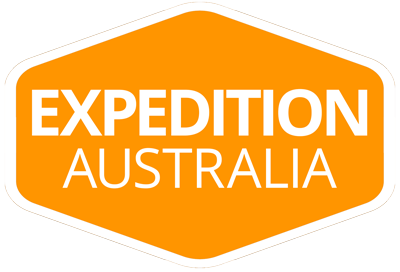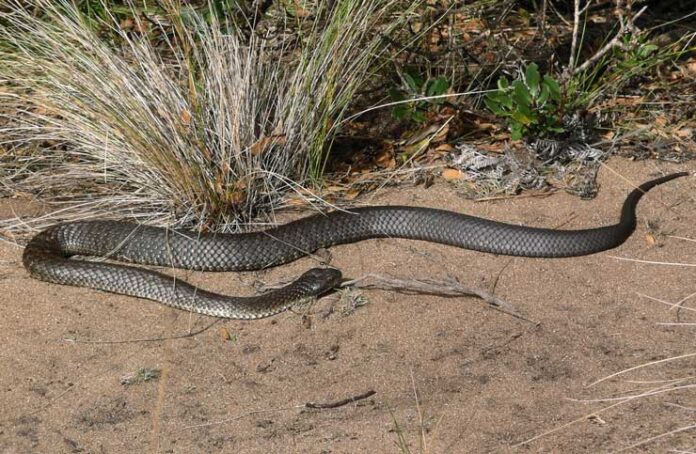During one camping trip in the beautiful Barrington Tops National Park, I went into my tent and found I had a guest. It couldn’t have been a frog or even a spider. Just my luck - It was a snake.
I was freaked out and had no idea what to do. Not that I wanted to do anything – I sure as sh*t wasn’t going near that tent until a hazmat team had cleared it.
They never came, so I had no choice than to wait him out. I shook the tent occasionally and then hit legs for 500 Metres as quick as I could.
I waited outside and the thing eventually just slithered away.
When I returned home, I did some research and found that there are over 170 species of snakes known to reside in Australia (on the land and the water), but only a dozen are known to be fatal for humans.
That's a lower percentage than I expected, but still dangerous.
Fortunately, they all want to avoid us as much as we want to avoid them. But sometimes we unintentionally "invite" snakes into our tents.
So here are five easy ways avoid that mistake and to keep your tent and campsite snake free. I wish I knew these before my encounter – but you can all learn from my mistakes.
1. Keep the tent away from snake homes.
Snakes like to hang out under fallen trees, so be sure to set up your tent in a relatively clear area, away from good hiding spots for snakes.
My tent backed on to a vegetated area, which was my first mistake.
2. Check your tent before climbing in.
Snakes also like to hide in the shade under tents.
If you leave your tent up during the day, leave it zipped shut. And check under the tent when coming back to the campsite, to make sure you don't have any new friends hanging out underneath it.
I was using a Coleman tent which has a bit of a lip coming up from the base. I thought that this would make it difficult for critters to get in – evidently I was wrong.
It's a good idea to shake out your sleeping bag before getting in, just in case a snake manage to get inside.
3. Check your tent for holes.
On top of keeping your tent zipped shut as much as possible, it is important to check your tent for any holes that a snake might use to sneak in.
You don't want to leave a "back door" open for snakes or anything else to get in.
If you find that your tent does have a hole or holes in it. This is a good guide for fixing it.
Although, after my experience, I would be more inclined to burn it and buy a new one.
4. Keep snake 'food' out of the campsite.
It's always a good idea to keep food (this includes leftover food scraps) in sealed, air-tight containers to discourage unwanted visitors.
This won’t directly stop snakes coming in to your tent as they aren’t interested in our food.
They are, however, interested in the animals that our food may attract. This includes animals like mice and birds.
5. Spray a chemical repellent around the campsite.
If you have an extreme phobia of snakes (or have just had the sh*t scared out of you by a snake before) there are repellents you can buy. These products contain chemicals that snakes avoid.
You can purchase these from some outdoor & camping stores. Although I haven’t tried these (yet!) from what I can see Liquid Fence is a popular brand. There are however a number of alternatives you can find on ebay.
Goodluck all! Stay Safe!



Hi. Take a container of old engine oil camping. Pour a thin "fence" around your tent. It works but is not very enviro-friendly. Old African preventative!
To keep snakes away place a radio down on the ground with speakers facing the ground and turn on. Turn bass up and volume up but not loud. Snakes have no ears but sense vibration and will avoid it. Try it and i hope you will never see a snake around the radio.
Perhaps the best camping for extreme snake phobia is the nearby Holiday Inn Express by night. Room service is optional! Go out in the wilderness in daylight hours watching where you step. I too have a healthy respect for snakes and scorpions. Remember, no tent is truly snakeproof! Enjoy what you can by getting in to the camping avocation slowly. Ask questions of locals regarding snakes and exercise due caution. Perhaps by your day visit to the wilderness will impress you and in time the phobia will just lighten enough to enjoy camping on your own terms without freaking out about local flora and fauna. Enjoy. Try to have a good time.
Why is no tent completly safe from snakes - can they chew through the material?
Does anyone have any suggestions (from experience) of how to remove a snake from within a tent?
May be try leaving some leftover of food just outside of the tent, this might attract rodents and could get snakes attention.
Truly rather great web site. Rather good towards browse and very a great deal interesting content. Certainly period incorporates not nevertheless appear again and greet.
When I camped as a boy scout in the 50s (long time ago), we would lay hemp rope around the exterior of the tent believing that a snake would not crawl over it. Not sure if this works, but we never had a snake in the tent.
Here's the first false comfort:
"When I returned home, I did some research and found that there are over 170 species of snakes known to reside in Australia (on the land and the water), but only a dozen are known to be fatal for humans.
That's a lower percentage than I expected, but still dangerous."
Why? Most snakes the "average" traveller is likely to come across will be the venomous species, Browns, Tigers, Copperheads, Taipans, Death Adder ....
Some are very territorial, eg Tigers, and even if they are frightened enough to get out of your way, they'll be back, sometimes in minutes. I've tried frightening off Tigers from campsites but they win in the end. Thumping the ground works for a short time..
Great content. However, I moved from the UK and not overly fond of snakes. I have two very young kids. Last time we camped, I carried a small axe, saw a snake near my child, chopped its head off and buried it (turned it into compost). Now my mrs is more confident. Next time if that happens again, bye bye..